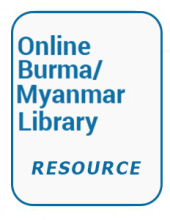Land Library Search
Through our robust search engine, you can search for any item of the over 73,000 highly curated resources in the Land Library.
If you would like to find an overview of what is possible, feel free to peruse the Search Guide.
/ library resources
Showing items 1 through 9 of 120.Dr Gavin Capps joined SWOP at the University of the Witwatersrand as a Senior Researcher in January 2013. He is leader of the Mining and Rural Transformation in Southern Africa (MARTISA) project, a six-year research programme funded by the Ford Foundation.
The Netherlands is an important actor in the floriculture sector worldwide. Many Dutch flower companies have in recent years established businesses in the Global South as a result of favourable climatic conditions, available land and water resources, and the presence of cheap labour.
EXECUTIVE SUMMARY: "In recent years, many governments globally have formally recognized community land and natural resource tenure, either based on existing customary practices or more recently established land governance arrangements.1 These tenure arrangements have been called by a variety of n
In 2008, three sugar companies were awarded nearly 20,000 hectares of Economic Land Concessions (ELCs) in Oddar Meanchey province. The new research finds that associated land grabbing totaling more than 17,000 hectares has affected more than 2,000 families.
PUBLISHER'S DESCRIPTION: An exclusive new analysis reveals that the Government of Myanmar has allocated at least 5.2 million acres and plans to allocate another 11 million acres of Southeast Asia’s last remaining biodiversity-rich high-value forests to make way for large-scale, private agribusine
The Bangkok-based Sino-Thai company Choern Pakard Group (CP Group), Asia's largest and most prominent agro-food/feed corporation, has led an industrial maize contract farming scheme with (ex-)poppy upland smallholders in Shan State, northern Myanmar to supply China’s chicken-feed market.
ABSTRACTED FROM THE INTRODUCTION: This working paper is an examination of current land formalization processes against the backdrop of Cambodian history and the political economy of land and agrarian change. I...
As Myanmar’s junta prepared to step down from government, the military set about seizing public assets and natural resources to ensure its economic control in a new era of democratic rule.
Myanmar has recently positioned itself as the world’s newest frontier market, while simultaneously undergoing transition to a post-war, neoliberal state.



